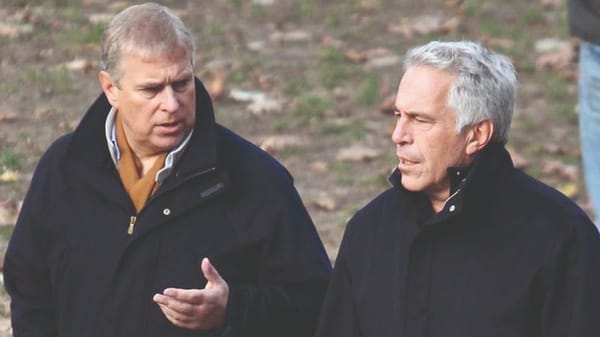Prince Andrew's Visit: Student Responses
Last week, Felix reported on Prince Andrew’s visit to the College as part of the Pitch@Palace campaign. As the news broke, we spoke to students around campus about their opinions, and promised to report back. We’ll highlight some particular responses that we feel summed up the opinions of many students
Our reporters generally noted several things.
Firstly, there were a very high – even a vast majority – of students who seemed unaware of the allegations against the Prince and thus were initially confused by the questions asked. This could be interpreted as either apathy, or a lack of knowledge. There have been speculations among UK commentators that the mainstream media has suppressed the news to some degree; this could be an explanation.
There were a variety of responses from students who were aware. These ranged from condemnations to a complete lack of concern – the diversity was very broad.
Several responses took the perspective that the Prince is ‘innocent until proven guilty’ and that the College, as a result, should act as if he is innocent. Indeed, the College’s reticence to comment directly on the Prince’s visit (as opposed to the event itself) seems to match this perspective. As one reporter put it, “that’s Imperial in a nutshell – trust in institutions.”
There were a few respondents who deemed the visit “for the greater good of the university”, in order to provide students with entrepeneurship. One respondent in particular took this view until the extent of the allegations was explained, and then once informed stated that they disapproved of the visit.
The number of students who actively opposed the decision was fewer than expected, but significant. One student explained that they didn’t disapprove because they didn’t feel that the College hosting the event amounted to an endorsement of Prince Andrew or Pitch@Palace. However, others disagreed and considered the decision highly controversial – and stated explicitly that they felt it did amount to an endorsement.
Lastly, there were students who simply seemed torn. Many of these seemed to fall into the ‘innocent until proven guilty’ camp, but felt inherently uncomfortable with the situation.
The lack of consensus shows how prickly the situation was; and how students need to converse about these issues in order to increase awareness and reach their own conclusions.
Editor’s Note:
One aspect of the conversation I feel has gone overlooked is the College’s abysmal response. One can argue either way that the decision to host the event and the Prince was acceptable or not. What is not acceptable was the College statement on the matter.
Felix explicitly asked the College about the message that the decision might send to young women, the College’s thoughts or priorities in that type of decision-making, and how they plan to address those feelings. They completely ignored those questions.
A stance such as ‘innocent until proven guilty’ would have been a perfectly acceptable response, whether one personally agrees or not. Even refusing to comment on innocence or guilt directly, but providing some reasoning for the decision, would have sufficed. What does not is disregarding the question and spending the entire statement boasting about the entrepreneurial benefits, with not a whit of concern expressed for how it may make students feel. I personally feel that the impact on young women at the College was not considered at the time of the decision, or really since.
Indeed, the statement given originally was almost purely about entrepreneurship – a spokesperson had to send a follow-up email the next day with a tidbit about a ‘code of conduct’ external events must follow on campus. To me, this just reinforces the impression that the feelings of students were not important enough to the College to factor into the decision. It was, at best, an afterthought. The priorities of the College were made quite clear – and this is what I find to be the travesty.
The College needs to restructure its decision-making process so that decisions are not made in isolation, but with a holistic sense of the situation and the affected stakeholders. This can be provided by integrating more conversation between different College divisions into the decision-making process. They also need to commit to transparency with their students – that much is very clear.





